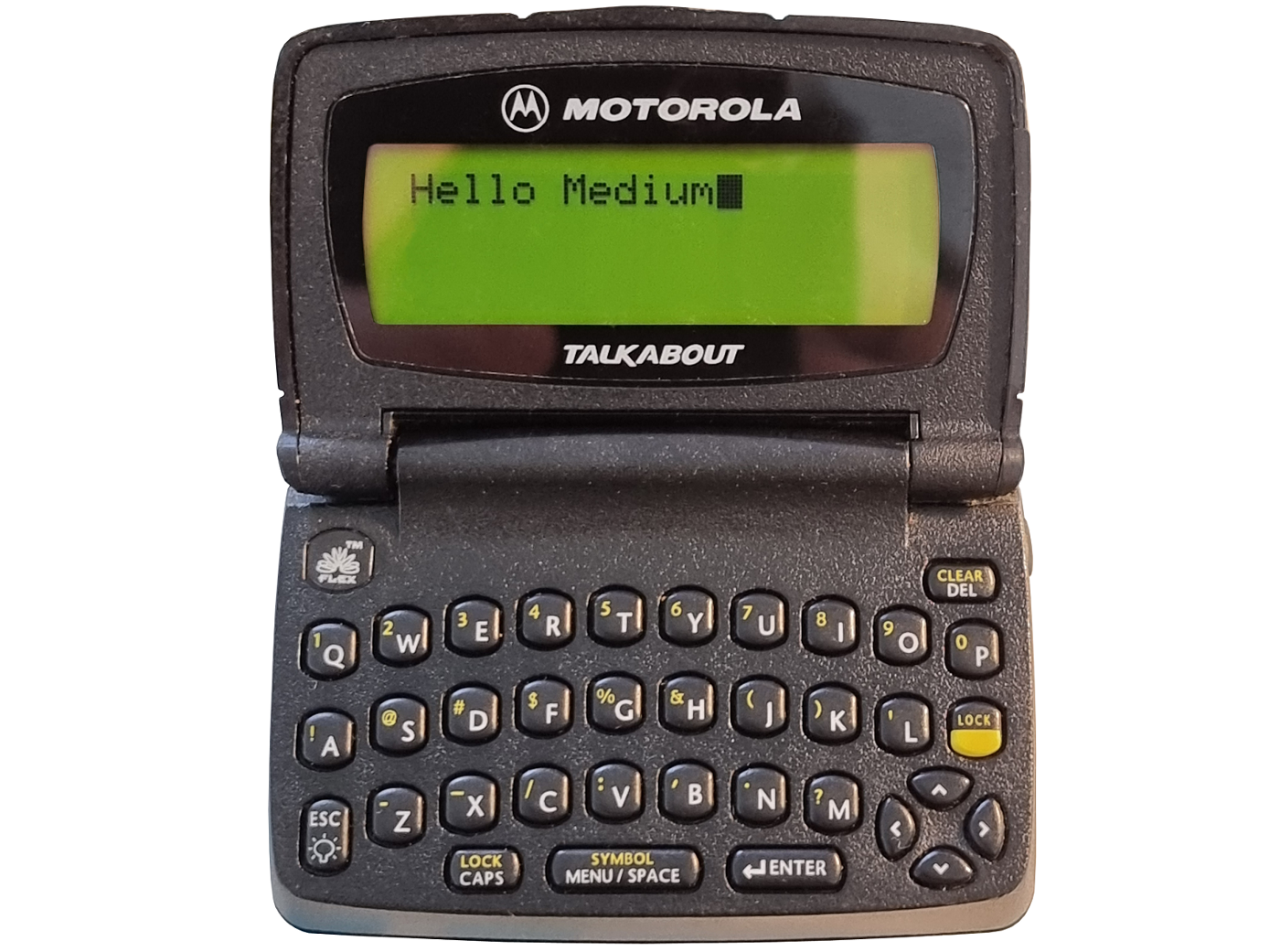What in the beep is this???
When you hear a beep or feel a buzz coming from your pocket today, it is most likely a smartphone. About 25 to 35 years ago, that was a different story. Before the smartphone was the pager. The pager was a whole machine just for notifications. Rather than getting a notification on your home screen, the pager notified the person someone was trying to reach them and to call them back. Pagers could be reached through a telephone or email, and later on even from another pager.
The first device that worked like a pager came around in 1921. The Detroit Police Department used them in their police cars. During this time the pager device was not a mainstream device. The first pager that was available to the public was created by Al Gross in 1949. At first, the idea did not take off. The pager was rejected by the medical community. Gross said, "They claimed it would disturb the patient, the nurses wouldn't want to carry it, and the doctors would be disturbed in their game of golf." Almost a decade later they began to be mass-produced after the New York Jewish Hospital decided to use the system. The original purpose of pagers had become successful.
In 1959, the pager was able to be sold for personal use. The company that sold them was Motorola and they were the ones who coined the name "pager." In the 80's the pager market was booming and there were around 3.2 million owned and used by everyday people. Only a decade later pagers were able to receive messages, rather than just a number the receiving person needed to go call. In the end on the 90's pagers could finally reply from the device. As of the past couple, years pagers are still used in certain workplaces. The one way pager
Unfortunately, compared to the smartphones on the market the pager does not appeal to the general public anymore. It lacks many capabilities of a smartphone making it the underdog. On a positive note, they are cheap, reliable, last a long time on one battery, and like my dad says "they snap right on your pants." Aside from those reasons, the pager is also more secure than any smartphone because it can not be hacked into and the information can not be stolen, as it is a one-way message delivery. Not only for the everyday person are they great and reliable, but the reason they started is the reason they are still around. Hospitals often have dead zones and the pager continues to work through the whole hospital because it doesn't run on cellular service. They also ensure the whole group of people who needs the message will receive it. They deliver the messages so quick and emergencies take quick reaction time in hospitals, I can only imagine they will continue to be around for a long time even if you cant see them.




Comments
Post a Comment